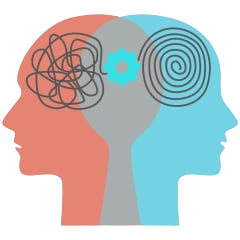COVID-19 Resources for Mental Health Coaches... Learn More
Anger Management
Anger management refers to a set of techniques and strategies designed to help individuals control and express their anger in constructive ways. Anger is a normal human emotion, but when it is expressed inappropriately or becomes chronic, it can lead to problems in relationships, work, and overall well-being. Anger management interventions aim to teach individuals healthier ways of dealing with and expressing their anger.
Key components of anger management may include:
1. **Self-Awareness:** Understanding the triggers and underlying causes of anger. This involves recognizing physical and emotional signs that indicate escalating anger.
2. **Cognitive Restructuring:** Identifying and challenging irrational or negative thought patterns that contribute to anger. This helps individuals reframe their thinking and adopt more balanced perspectives.
3. **Relaxation Techniques:** Teaching individuals to use relaxation methods such as deep breathing, progressive muscle relaxation, or meditation to calm the physiological response associated with anger.
4. **Communication Skills:** Enhancing interpersonal skills, assertiveness, and effective communication to express feelings and needs without resorting to aggression.
5. **Problem-Solving:** Encouraging individuals to find constructive solutions to the issues that trigger their anger, rather than reacting impulsively.
6. **Time-Outs:** Learning to step away from a situation temporarily when feeling angry, giving oneself the opportunity to cool down and reflect before responding.
7. **Stress Management:** Addressing underlying stressors that may contribute to heightened levels of anger and implementing strategies to manage stress effectively.
8. **Behavioral Strategies:** Developing alternative behaviors to replace aggressive or destructive expressions of anger. This may include assertiveness training and conflict resolution skills.
Anger management programs can be delivered in various formats, including individual counseling, group therapy, or structured educational courses. These interventions are valuable for individuals who struggle with anger-related issues, as well as for those who want to enhance their emotional regulation skills. Seeking professional help from therapists, counselors, or support groups is often beneficial for individuals dealing with persistent anger problems.





